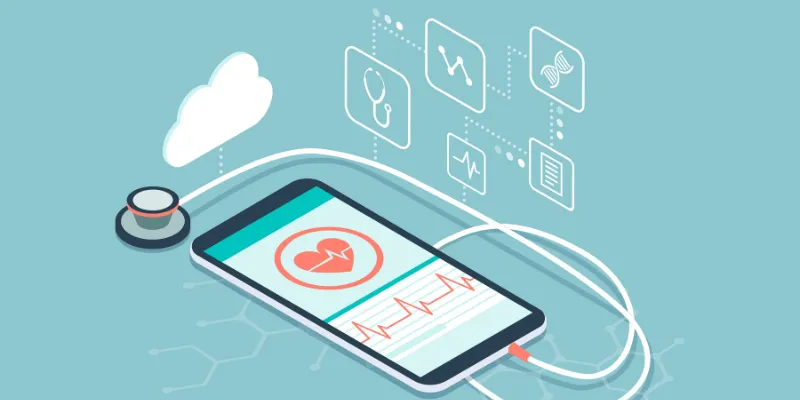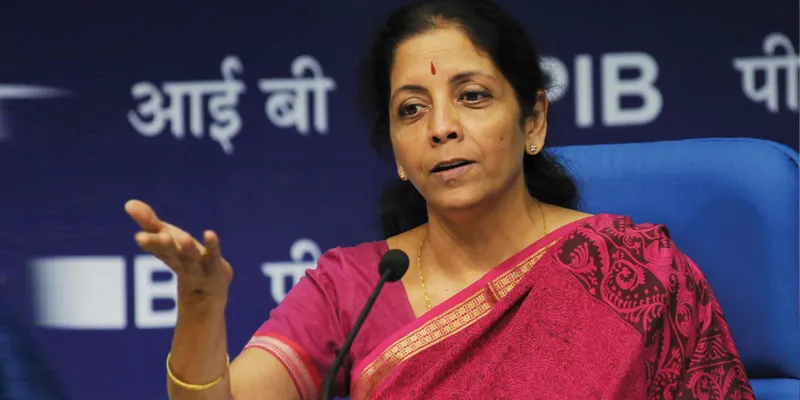One year of lockdown: How healthtech startups helped India launch the world’s largest COVID-19 vaccination drive
With public-private partnerships and government support, India has been fighting the pandemic with innovations. Now, India is exporting COVID-19 vaccines, along with other necessities such as masks and PPE kits to other countries.
A year ago on this day, the central government announced a nationwide lockdown to curb the spread of the COVID-19 pandemic. The global health crisis was not only unprecedented but its highly infectious capabilities created immense pressure on the already short-staffed and inadequate healthcare infrastructure.

Representational Image
From the shortage of PPE kits, masks, sanitisers, and test kits to launching the largest COVID-19 vaccination drive, the Indian healthcare sector has come a long way in this one year, and startups played a major role in this journey.
On January 16, 2021, the Indian government began what was essentially one of the largest COVID-19 vaccination drives in the world. Earlier this month, Finance Minister Nirmala Sitharaman said that India has taken the lead role in manufacturing medicines, vaccines, and diagnostics during the pandemic.
Post the administration of vaccines to people above 60 and those aged between 45 and 60 with comorbidities, India is now looking to vaccinate anyone aged 45 to 60 even without any existing health conditions from April 1.
The public and private sector is now working together to raise awareness about the vaccination and ensure that it reaches every nook and cranny of the country. Several startups and big corporates have also taken up the onus of getting their employees vaccinated.
According to reports, India is also exporting vaccines to other countries such as Bangladesh, Brazil, Kuwait, and the UAE among others, and also other necessities such as masks and PPE kits to countries like the US, the UK, the UAE, Senegal, and Slovenia.
Accelerated digitisation
Several experts have said that the pandemic accelerated digitisation in the healthcare sector. As the lockdowns forced people to stay home and made them wary of in-person consultations, people switched to online consultations, remote monitoring, and telemedicine services.
At an industry event, Dr Sangita Reddy, Joint Managing Director at Apollo Hospitals Group, had said, “Digitisation has enhanced access and quality of healthcare. Digitisation has helped us to reach the unreachable.”

Representational Image
The startup ecosystem not only fought the crisis with innovation but also positioned India as one of the forerunners in the global healthcare ecosystem.
“India is poised to be the one-stop solution for health,” Cabinet Minister Piyush Goyal said in an industry event.
According to IAMAI-Praxis HealthTech Predictions 2021, COVID-19 turned out to be a much-needed catapult to push customer adoption towards online consultation, e-pharmacy, homecare services, and e-diagnostics.
Had it not been for the pandemic, this shift would have taken another four to five years, it added.
While healthcare has seen increased digitisation on several fronts, such as telemedicine, mobile health, remote monitoring, electronic medical records, and smart devices, telemedicine grabbed the lead role in healthtech.
In an earlier interaction with , Dr Alexander Kuruvilla, Chief Healthcare Strategy Officer of Practo, said, “It becomes next to impossible for everyone to get proper medical attention as there is only one doctor for every 1,445 people in the country. Especially after the outbreak of COVID-19, telemedicine has been playing a frontline role. Access, quality, and affordability are three key issues the healthcare sector is facing today, and telemedicine fits in well to solve for all three. While its first usage in India dates back to a couple of decades ago, it’s really only in recent months that India has truly experienced its full potential.”
Government support
Realising the gaps in the healthcare segment and the plethora of opportunities available to develop solutions, the government has also dedicated its support towards developing the sector.
Earlier this year, Finance Minister Nirmala Sitharaman announced health and well-being to be one of the six pillars of Budget 2021. She proposed an allocation of Rs 2,83,846 lakh crore for the healthcare and wellness sector, including Rs 35,000 crore for COVID-19 vaccines.

Finance Minister Nirmala Sitharaman
Sitharaman also announced the launch of Atmanirbhar Swastha Bharat Yojana with an outlay of Rs 64,180 crore, which will be used for developing primary, secondary, and tertiary healthcare over a period of six years.
Last August, the central government also launched the National Digital Health Mission under which every Indian will get a health ID to ensure easy access to medical services.
The COVID-19 breakout also cleared the clouds on telemedicine and teleconsultation services. Amid pandemic-led lockdowns, the government immediately launched telemedicine guidelines realising its potential to provide healthcare services remotely.
With increased government support and the startup ecosystem gearing up to not only combat COVID-19 but also prepare for future health crises, the IAMAI-Praxis report revealed that the Indian healthtech market is growing at a 39 percent CAGR to reach $5 billion by 2023.
Other rising trends amid COVID-19
Apart from telemedicine and teleconsultation services, the sector has also seen increased adoption of AI/ML, especially in the diagnostics segment.

Representational Image
Earlier, Gaurav Gupta, Co-founder of Navia Life Care, had said AI has the potential to transform the way healthcare is delivered.
“AI in healthcare has potential in improving healthcare chronic care management, care delivery, clinical decision support selfcare, wellness, and diagnostics,” he adds.
Apart from this, the adoption of smart devices and remote monitoring apps is also on the rise.
The pandemic also led people, in general, to be more cautious about their health — and not just when one is unwell.
Edited by Saheli Sen Gupta










